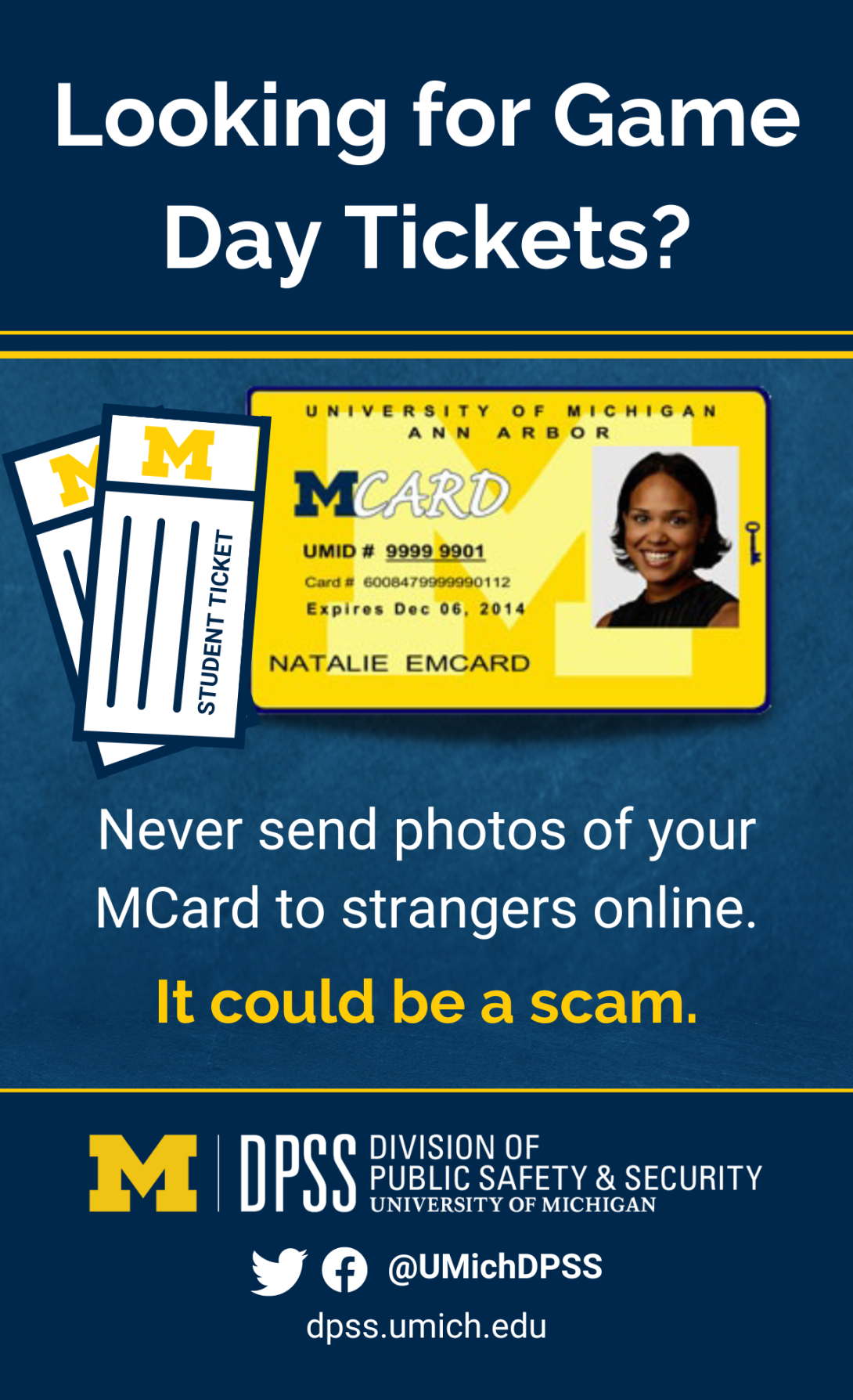With an exciting football season now underway, the university’s Division of Public Safety and Security wants to make sure that you are safe and protected from potential fraudulent ticket sales. Scammers will often try to take advantage of interest in football tickets to steal people’s money and information. You should never send photos of your MCard to strangers online and MCard information should never be shared with others.
Besides fraudulent ticket sales, there are several other scams that are targeting students. These include several forms of sextortion scams that have impacted members of our community. DPSS has also been investigating scams that specifically target international students. There have been many occurrences of phishing scams, such as threatening to deport students if they don’t pay. These go as far as having a pre-recorded message being spoken in your native language and having a phone call from your home country. Please be cautious of these scams and do not ever send large amounts of money or photos of your identity documents.
Scams have become increasingly sophisticated and complex, and can occur across multiple platforms. Please refer to the guidance below for information on how to protect yourself and what to do if you are a victim of internet crime.
How To Protect Yourself:
- Never send compromising images of yourself to anyone, no matter who they are or who they say they are.
- Don’t open attachments from people you do not know. Links can secretly hack your electric devices using malware to gain access to your private data, photos, and contacts, or control your web camera and microphone without your knowledge.
- Turn off your electronic devices and web cameras when not in use.identity credentials when asked, and will never demand payment or confidential information.
- Don’t give any personal or confidential information over the phone or by email.
What to do if you are a victim of internet crime:
- Don’t panic - contact the University of Michigan Police Department immediately, even if you’ve already paid money. If you are not on campus, contact your local police department.
- Stop further communication with the criminals immediately.
- Take screenshots of all correspondence as backup. Don’t pay anything and don’t delete any correspondence.
- Suspend your social media accounts and use the online reporting process associated with compromised accounts.
- File a complaint with the FBI IC3 at www.ic3.gov
- Remember - you are not alone, as these scams target many people each year. Don’t be embarrassed or afraid to contact law enforcement if it happens to you.

